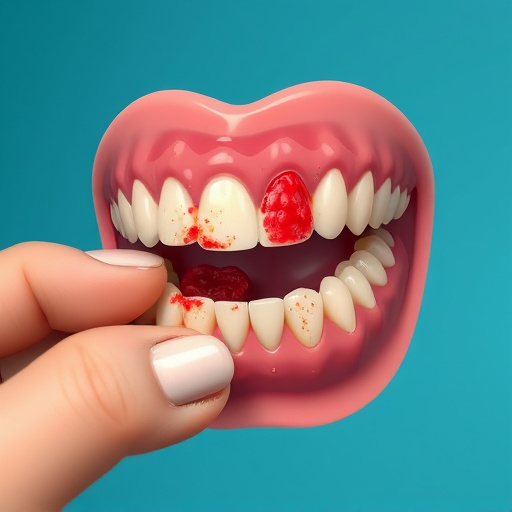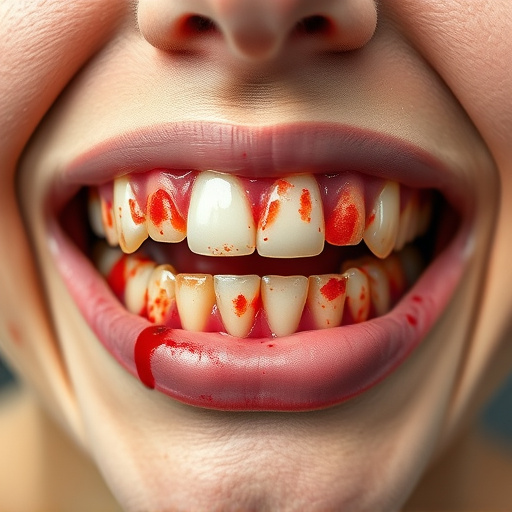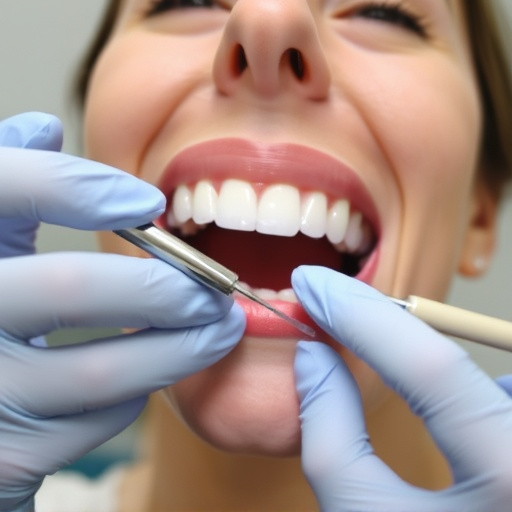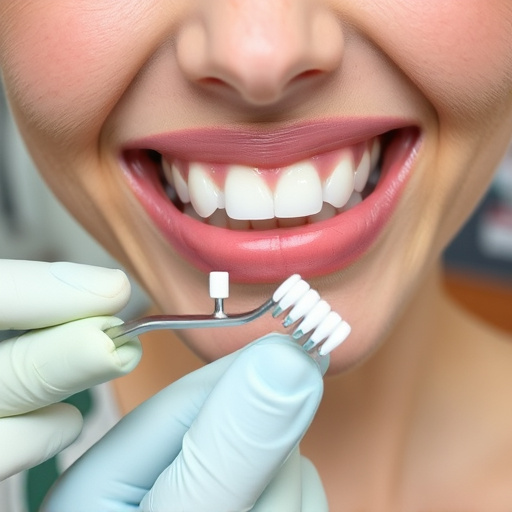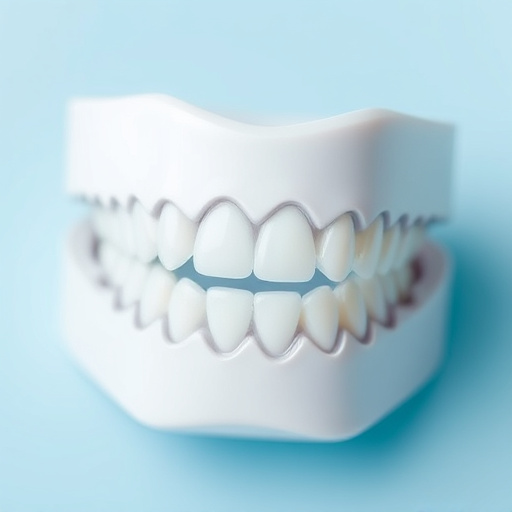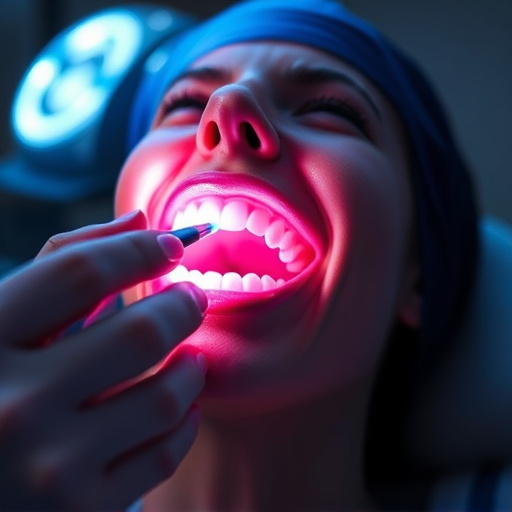Tooth sensitivity, caused by enamel erosion and exposed dentin, leads to pain from temperature and chemical stimuli. Treatment options include professional cleanings, desensitizing toothpaste, in-office procedures like fluoride or gum graft surgeries, clear aligners, and children’s dentistry interventions. Consistent oral hygiene with regular dental cleanings, proper brushing, flossing, and additional protective measures like fillings prevent plaque buildup for long-term relief.
Are you tired of sharp, sudden toothaches triggered by hot or cold foods? You’re not alone. Tooth sensitivity is a common dental issue affecting millions. This article demystifies this condition, exploring its causes and symptoms. We delve into effective tooth sensitivity treatment options, ranging from at-home remedies to professional procedures. Additionally, discover long-term strategies for maintaining healthy teeth and gums, achieving lasting relief from those pesky sensitive spots. Find out how to reclaim your smile with the right tooth sensitivity treatment.
- Understanding Tooth Sensitivity: Causes and Symptoms
- Exploring Effective Treatment Options for Sensitive Teeth
- Long-Term Relief: Maintaining Healthy Teeth and Gums
Understanding Tooth Sensitivity: Causes and Symptoms
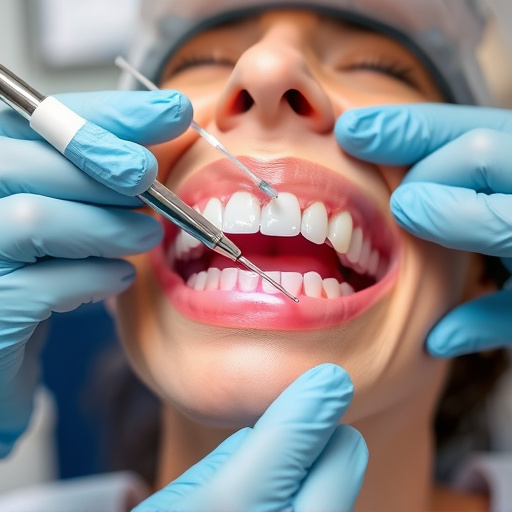
Tooth sensitivity, a common oral health issue, affects millions of people worldwide. It is characterized by sharp pain or discomfort in teeth when exposed to hot, cold, sweet, or acidic substances. Understanding the causes and symptoms is the first step towards effective tooth sensitivity treatment.
Several factors contribute to this condition. Enamel, the protective outer layer of teeth, can wear down over time due to brushing too hard, grinding teeth (bruxism), or exposure to acid from certain foods and drinks. Receding gums, often caused by poor oral hygiene or gingivitis, also expose the sensitive dentin beneath. Additionally, tooth decay, cracks in the tooth, or even certain dental procedures can trigger sensitivity. Common symptoms include sudden jolts of pain, shooting sensations, or a general tingling feeling in the teeth. Identifying these triggers is crucial for seeking appropriate tooth sensitivity treatment, which may involve professional dental cleanings, specialized toothpaste, or in severe cases, procedures like dental implants or children’s dentistry interventions to address the underlying issues.
Exploring Effective Treatment Options for Sensitive Teeth
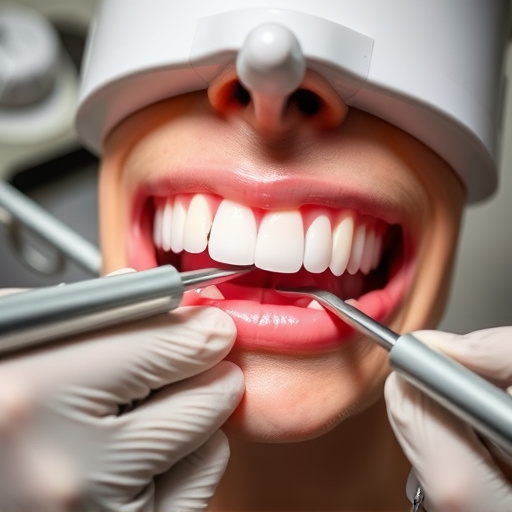
When it comes to tooth sensitivity treatment, there are numerous options available that can significantly reduce toothache and sharp sensations. The key is identifying the root cause of the sensitivity, which could be due to factors like enamel wear, gum recession, or exposed dentin. Preventive dentistry plays a crucial role here, with regular check-ups and proper oral hygiene practices helping to mitigate the issue before it becomes severe.
One effective tooth sensitivity treatment involves using desensitizing toothpaste, which contains ingredients that block the transmission of sensations from the tooth’s surface to the nerve. For more advanced cases, in-office procedures such as fluoride applications or gum graft surgeries might be recommended. Even clear aligners and children’s dentistry techniques can incorporate special coatings or treatments to address sensitivity during orthodontic correction or for younger patients with sensitive teeth.
Long-Term Relief: Maintaining Healthy Teeth and Gums
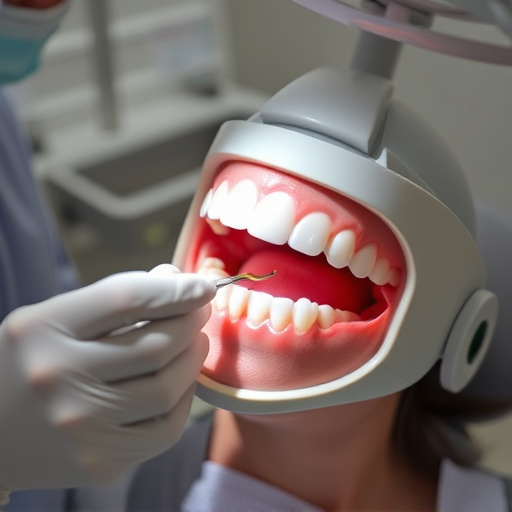
After receiving tooth sensitivity treatment, it’s crucial to maintain a consistent oral care routine to ensure long-term relief. Regular dental cleanings play a vital role in removing plaque and tartar buildup, which can exacerbate tooth sensitivity and lead to further dental issues. Maintaining healthy teeth and gums through proper brushing and flossing techniques, along with regular check-ups, will help preserve the results of your treatment.
In some cases, additional procedures like dental fillings or even dental bonding might be recommended to address any existing damage or gaps in the enamel, providing extra protection against sensitivity triggers. By combining these treatments with proactive oral hygiene practices, individuals can experience sustained comfort and reduced sharp sensations, enjoying a healthier and happier smile over time.
Tooth sensitivity treatment is a viable solution for alleviating toothache and sharp sensations. By understanding the causes and symptoms, exploring effective options, and maintaining healthy teeth and gums, individuals can achieve long-term relief from tooth sensitivity. Integrating proper oral hygiene practices and seeking professional care are key components in managing this condition. With the right approach, it’s possible to reclaim comfort and confidence in your smile.


